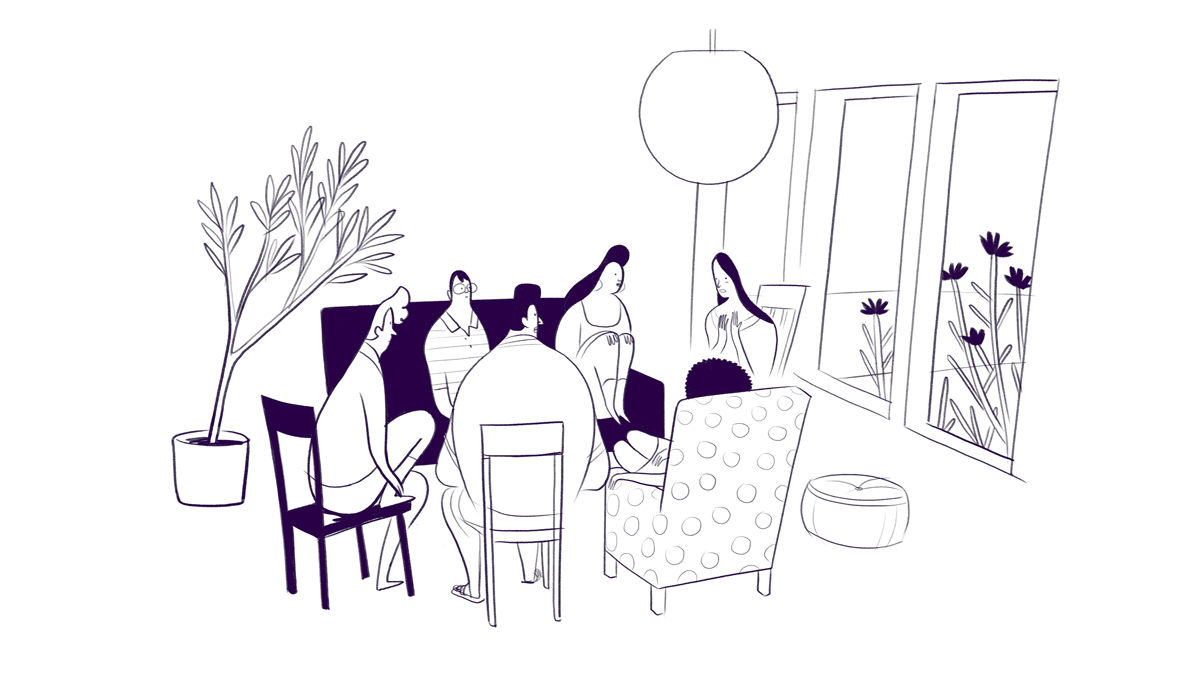Al-Anon versus CRAFT
At Allies in Recovery, we are dedicated to working with families who have a Loved One—a child, partner, or other family member—struggling with addiction. We aim to empower the family so that they can become their Loved One’s ally in moving towards recovery. We are also concerned with the family members’ wellbeing.
Al-Anon is an organization that focuses primarily on the family member and their recovery from being with someone who uses substances. Following a 12-step approach adapted from Alcoholics Anonymous (AA), Al-Anon (Nar-Anon) guides family members through a process of self-discovery and healing. The program emphasizes that family members have no control over someone else’s drug or alcohol use. According to Al-Anon, nothing can be done until the loved one hits bottom, admits the problem, and stops using. In the meantime, the family member is encouraged to “detach with love.”
The gentle influence of the family…
At Allies in Recovery, we agree that there is no controlling someone’s substance use. However, we differ on a crucial point: a family member does have influence. A family member is part of the immediate environment. They can therefore create the conditions that promote reduced use and recovery.
How? At Allies in Recovery, we teach the family member a set of skills for better responding to a Loved One’s behavior. With Allies, you learn key communication techniques to build a bridge to your Loved One and strengthen your connection. When they are using, you’re going to allow natural consequences, detach yourself, and remove rewards. When they aren’t using you’re going to reward that behavior.
CRAFT principles are typically applied in the present moment, but can also guide the larger decisions that many families face: housing, financial support, use of the car, help with the logistics of getting treatment.
…can guide a loved one to treatment
The CRAFT approach teaches that there are actions you can and should take while your Loved One is still using. By doing so, you will help to unblock the situation, moving your Loved One towards treatment and recovery.
On this important point, Allies in Recovery is different from Al-Anon. We also know that connecting with others who share your experience can be incredibly helpful. That’s why, in addition to the tools and strategies we teach, we offer CRAFT-based groups where you can connect with others and learn ways to address a Loved One’s addiction. If you find Al-Anon helpful, we encourage you to continue attending those meetings as well, but we also suggest exploring the CRAFT approach offered through Allies in Recovery.
70% of our members surveyed succeed in getting their Loved One to accept help. This is a critically important outcome that confirms that taking action works. It is proof that you have a role to play. It is evidence that intervening before a Loved One hits bottom is successful in helping to guide them towards help and recovery.
Ready to learn proven strategies to help your Loved One move toward recovery? Join Allies in Recovery for expert guidance, practical tools, and a supportive community. Explore our affordable membership today: Learn more.



